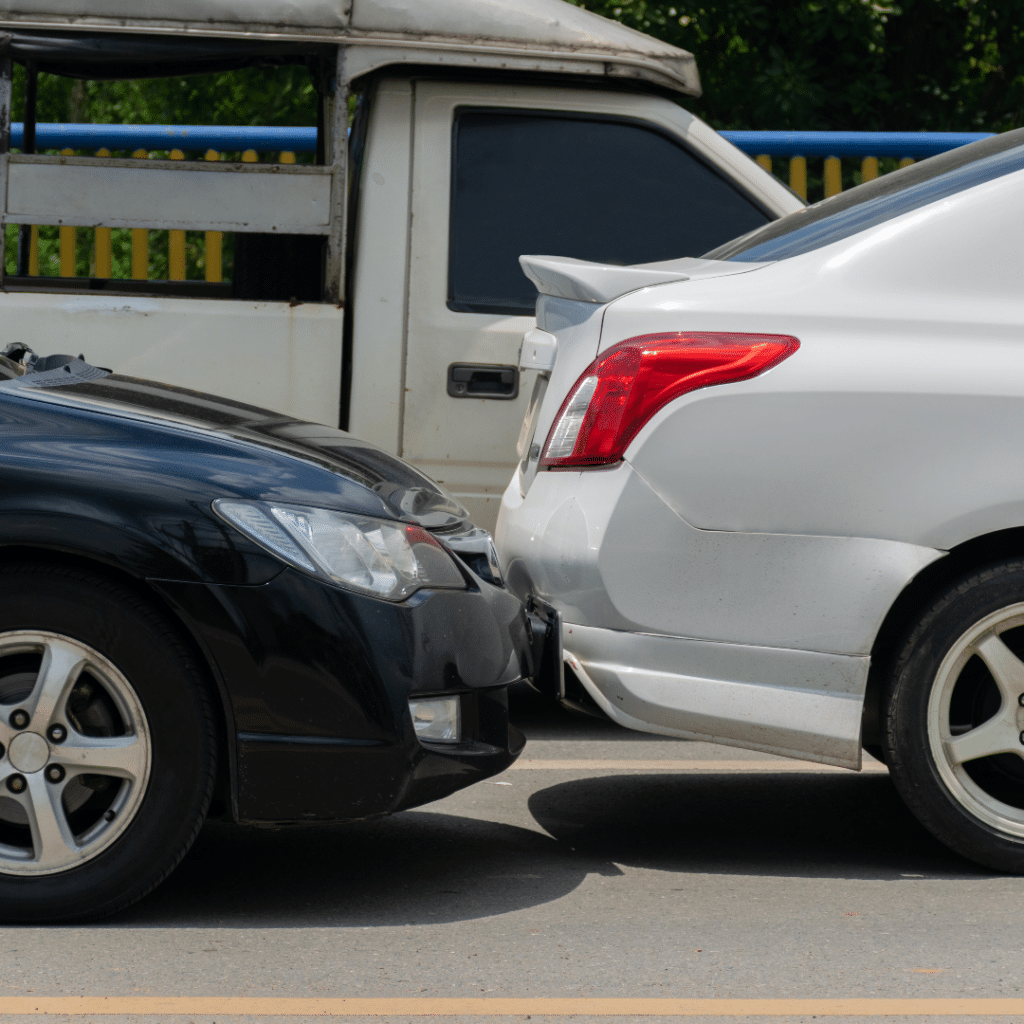People assume the rear driver is at fault in rear-end collisions. In most instances, this assumption would be correct, but not always.
Decisions from car accident cases in Florida have established a presumption that the trailing vehicle’s driver is at fault in a crash. However, presumptions are not conclusive. They may be challenged with evidence showing fault on the part of someone else. This may include the driver of the car that was hit. Sounds strange, doesn’t it?
Rear-end collisions necessitate a comprehensive investigation. This process helps determine the cause and responsible party through collected evidence. Determining liability in a rear-end crash is not that easy. This blog looks at the laws in Florida that apply to rear-end accidents. It also explains how you may be entitled to compensation for your injuries. Lastly, It gives examples of how crashing into the rear of another car may not be your fault.
Common causes of rear-end accidents
There were 396,492 crashes on Florida roadways last year, with 27,649 in Hillsborough County. According to data compiled by the federal government, collisions make up about 30% of motor vehicle accidents.
A rear-end collision occurs when a car or truck approaches another vehicle from the rear and crashes into it. Some of the common causes of these types of accidents include the following:
- Distracted driving: Anything that causes you to take your hands off the steering wheel, your eyes off the road, or your attention away from driving is a distraction. Eating, using a cellphone to talk or text, adjusting the controls of a radio, looking at a navigation device or system, and having conversations with passengers are all distractions that could prevent you from slowing down and stopping in time to avoid a colliding with a vehicle in front of yours.
- Tailgating: It is illegal in Florida to follow another vehicle closer than is “reasonable and prudent,” according to the law’s wording. What is reasonable and prudent on a sunny day when a road’s surface is dry may not be safe when it’s raining because you need more time to stop on a wet surface.
- Speeding: You should adjust the speed of your vehicle to accommodate weather, road, and traffic conditions. The faster the speed of your car, the more time and distance are needed to stop in time to avoid an accident.
- Impaired driving: A driver impaired by drugs, alcohol, or a lack of sleep takes longer to make decisions and react to emergencies. An impaired driver may be unable to stop in time to avoid crashing into the rear of another vehicle.
- Mechanical failures: Worn or defective brakes and tires can prevent you from stopping in time to avoid a collision. Brake likes that are not working prevent another driver from seeing that you are slowing down or stopping.
Weather, particularly the rainstorms common to Florida, makes it difficult to see the road and vehicles ahead of you. So slow down and pull off the road to avoid crashing into other cars.
Injuries common in rear-end car accidents
Rear-end impact thrusts car occupants forward and backward in a whip-like motion. The effect on the body, particularly the neck, back, and spine, can be devastating. Injuries common to rear-end car accidents include the following:
- Whiplash: This neck injury occurs when the head is violently jerked forward and backward. Whiplash can cause pain, stiffness, reduced range of motion, headaches, dizziness, and other symptoms that may last for months and even years.
- Back injuries: The force of the collision can damage the spine, discs, nerves, muscles, and ligaments in the back. Back injuries cause pain, numbness, weakness, and loss of function in the lower extremities.
- Head injuries: The impact of the collision can cause the head to hit the steering wheel, dashboard, or other portion of the vehicle’s interior. However, the sudden and violent head movement may cause the brain to strike the skull’s interior and cause a concussion and traumatic brain injury.
- Chest injuries: The force of the collision can cause the chest to hit the steering wheel or seat belt. Chest injuries can include broken ribs and internal bleeding.
Other injuries associated with rear-end car accidents include limb fractures, sprains, strains, and lacerations.
Who is at fault when there is a rear-end collision in Florida?
Usually, the burden of proving that a motorist was negligent in the operation of a motor vehicle is on the plaintiff or injured party. The personal injury lawyer representing a plaintiff must gather and present evidence proving the following four elements of a negligence case:
- Duty of care: A duty of care must be owed by the defendant in a lawsuit to the plaintiff. The duty owed by all drivers is to refrain from operating their vehicles in an unsafe manner.
- Breach of the duty: The plaintiff’s lawyer must prove the other party breached the duty of care through the way they drove their vehicle. Speeding, distracted driving, and driver impairment are ways to establish a breach of duty.
- Causation: Evidence must prove the plaintiff’s injuries resulted from a defendant’s breach of duty.
- Damages: Plaintiffs must prove they incurred losses to recover compensation in a car accident lawsuit.
Florida court decisions created a presumption of negligence in rear-end accidents that plaintiffs may rely upon.
The presumption of negligence means a rear-end collision would not have occurred were it not for negligence by the driver whose car crashed into the rear of another vehicle. It shifts the burden of proof from plaintiffs to defendants, who must prove they were not negligent.
Here are scenarios where the rear driver may not be fully at fault in a crash:
- The brake lights of the front vehicle were not functioning.
- A motorist backs a car into the front end of another car.
- A vehicle stops unexpectedly and without cause, which results in another car crashing into its rear.
- A rear-end crash causes a vehicle to be pushed into the back of another car, such as when a line of vehicles are stopped at a traffic light.
The possibility that another party may be at fault in a car accident makes it essential that you do not make any statements to anyone at the scene of a rear-end accident. Your statements can either establish your fault or undermine your available defense.
This year, proving that someone else is at fault in a rear-end car accident took on more significance when Florida adopted a modified comparative negligence law. The law prevents anyone more than 50% at fault for causing a car accident from recovering compensation. If they are less than 50% negligent, they may recover compensation. But, their percentage of fault will reduce how much they receive.
Talk to a Tampa personal injury attorney
Injured in a rear-end collision? Contact KFB Law’s Tampa auto accident lawyer for insight into your rights. Being the rear-end driver doesn’t necessarily imply fault in a collision. Contact KFB Law today to arrange for a free consultation and claim analysis.



